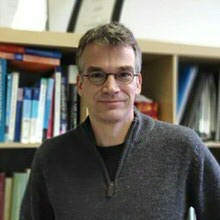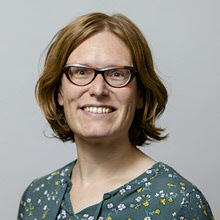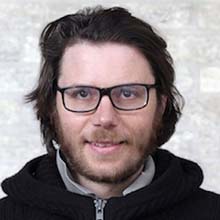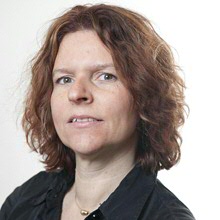Five experienced researchers from Groningen awarded Vici grants
The Dutch Research Council (NWO) has awarded 32 experienced researchers a Vici grant worth € 1.5 million each. Three of the awardees are conducting research at the University of Groningen (UG), and two at the University Medical Center Groningen (UMCG). The Vici grants will enable them to develop innovative lines of research for the next five years. Vici is one of the largest personal academic grants awarded in the Netherlands, and is aimed at experienced researchers who are free to put their own research project forward for funding.
Rector Magnificus Prof. Cisca Wijmenga is very excited about the grants: ‘In 2018, the UG and the UMCG missed out on the Vici grants. It’s a very different story this year, with a staggering five researchers being awarded these grants, three of whom are women! I know from experience how important funding from the Dutch Research Council is. A Vici grant allows you to expand and consolidate your own research group.’
Groningen's Vici laureates 2019 are: Professor of Psychosomatic Medicine Judith Rosmalen and Associate Professor of Cell Biology Liesbeth Veenhoff from the UMCG, Professor of Molecular System Biology Matthias Heinemann and Associate Professor of Molecular Biology Giovanni Maglia from the Faculty of Science and Engineering (FSE), and Associate Professor of Demography Fanny Janssen from the Faculty of Spatial Sciences (FSS) and the Netherlands Interdisciplinary Demographic Institute (NIDI).

Prof. Matthias Heinemann, FSE: Unravelling the metabolic clock of the cell
Metabolism and cell division are essential for continuing life, but we still do not understand the interaction between these processes. Matthias Heinemann intends to unravel the mechanism that is responsible for the clock-like dynamic behaviour of metabolism during eukaryotic cell division. This will generate important information for the fields of biomedical science and biotechnology.

Prof. Fanny Janssen, FRW: Future socioeconomic inequality in mortality
Socioeconomic differences in mortality constitute an important social issue, but we do not know how these differences are realistically likely to develop. In her research, Fanny Janssen intends to devise an advanced prediction model for mortality inequality using new information about the effects of smoking, obesity and alcohol. She also aims to ascertain the possible effects of preventive health policy.

Prof. Giovanni Maglia, FSE: Next-generation nanosensor for home diagnostics
Cells cannot function without proteins. The concentration, expression and chemical modifications of proteins are accurate indicators of many diseases. In this project, Giovanni Maglia will develop cheap, fast technology for detecting and analysing proteins, to be used to improve home diagnostics.

Prof. Judith Rosmalen, UMCG: Symptom sensitivity
Judith Rosmalen has been researching psychosomatic illness for many years. She will use the Vici grant to study how experiences from a person’s youth can affect the degree to which they suffer from physical symptoms. Previous research has revealed vast differences in people’s reactions to physical symptoms. This is related to hereditary differences as well as to previous experiences with physical symptoms. Rosmalen will use people’s childhood experiences to explore how these differences develop.

Prof. Liesbeth Veenhoff, UMCG: Poor old Pores
Liesbeth Veenhoff wants to know how and why cells change as they age. Her research focuses on changes in the nuclear pore complexes; the ‘gatekeepers’ to the nucleus. Nuclear pore complexes play a key role in biology. After all, information in the DNA must leave the nucleus in order to make new molecules. The researcher wants to know which quality control mechanisms are in place to ensure that nuclear pore complexes can do their job effectively. This isn’t as easy as it may sound, and tends to go wrong during the ageing process and if the body is confronted with certain neurodegenerative diseases. It is hoped that activating these control mechanisms may provide a new way of repairing old or diseased cells.
About Vici grants
A total of 242 researchers submitted research proposals in the hope of acquiring funding during the 2019 round of Vici applications. Thirty-two of these proposals were honoured. Vici grants are intended for highly experienced researchers who have successfully proved that they are able to develop their own innovative lines of research, and who also act as coaches for younger researchers. Vici grants are one of the three forms of funding offered through the Innovational Research Incentives Scheme. The other two instruments are Veni grants (for researchers who have recently gained a PhD, within a maximum of three years) and Vidi grants (for experienced post-doc researchers, within a maximum of eight years of gaining a PhD).
Read more about UG researchers and the projects that have been honoured with a Veni, Vidi or Vici grant on the special Veni, Vidi and Vici page.
More news
-
10 February 2026
Why only a small number of planets are suitable for life
-
09 February 2026
Can we make the earth spin in the opposite direction?
